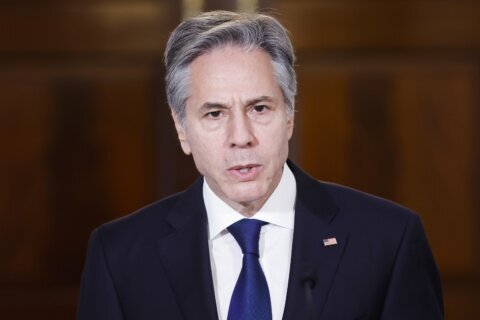

WASHINGTON (AP) — Secretary of State Antony Blinken is planning to travel to China next week as the Biden administration pushes to improve ties that hit a new low in February after a Chinese surveillance balloon was shot down over U.S. airspace.
U.S. officials say Blinken expects to be in Beijing on June 18 for meetings with senior Chinese officials, including with Foreign Minister Qin Gang and possibly President Xi Jinping.
The officials spoke on condition of anonymity because neither the State Department nor the Chinese foreign ministry has yet confirmed the trip.
The visit, which was agreed between Xi and President Joe Biden last year at a meeting in Bali, had been initially planned for February but was postponed after the spy balloon incident. Beijing insists the craft was a weather balloon that strayed off course.
Since then, there have been contacts between the U.S. and China, but they have been rare as tensions have risen over China’s conduct in the South China Sea, aggressive actions toward Taiwan and support for Russia’s war against Ukraine.
Last week, China’s defense minister rebuffed a request from U.S. Defense Secretary Lloyd Austin for a meeting on the sidelines of a security symposium in Singapore.
However, shortly after postponing his trip to Beijing, Blinken met briefly with China’s top diplomat, Wang Yi, at the Munich Security Conference in Germany.
And, CIA chief William Burns traveled to China in May and China’s commerce minister traveled to the U.S. last month. And Biden’s national security adviser Jake Sullivan met with Wang in Vienna in early May.
The White House said at the time that the meeting “was part of ongoing efforts to maintain open lines of communication and responsibly manage competition. The two sides agreed to maintain this important strategic channel of communication to advance these objectives.”
More recently, the top U.S. diplomat for the Asia-Pacific region, Daniel Kritenbrink, traveled to China earlier this week along with a senior National Security Council official.
This post was originally published on this site



